The ARF Field School
The 2026 ARF Field School application form is now open! The 2026 program will run from May 26 – July 2, 2026, as part of UC Berkeley Summer Session A. Read more and apply here by January 31, 2026.
Find out more about this program:
- Read more about the ARF Field School in an article that is part of a special section of the November 2024 issue of The SAA Archaeological Record: "A Paid Archaeological Training Program for Commuter Students: The UC Berkeley Archaeological Research Facility Field School"
- Watch a 3-minute video about the field school.
Summer 2024 Leadership and Speakers
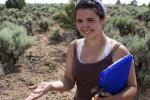 Elizabeth Dresser-Kluchman, 2024 Field School Director
Elizabeth Dresser-Kluchman, 2024 Field School Director
EB Dresser-Kluchman is a PhD Candidate in UC Berkeley's Anthropology Department. As a paleoethnobotanist, her research primarily concerns questions of cuisine and landscape in the American Southwest, focusing on field and lab methods for macrobotanical, wood, and starch grain analyses and questions of environment, taste, culinary tradition and change, and food sovereignty in the past and present. She has participated in survey, excavation, and collections-based research spanning pre- and post-colonial time periods in the US Southwest and Northeast, and she is particularly interested in building best practices in field and lab teaching.
 Karla Saracay, 2024 Excavation Director
Karla Saracay, 2024 Excavation Director
Karla Saracay earned her B.A. in Anthropology from UC Berkeley in 2021. She worked at the McCown Archaeobotany laboratory from 2018 to 2022, preparing materials from the Upper Mantaro Archaeological Research Project (UMARP) for accessioning into the Phoebe A. Hearst Museum of Anthropology. She taught High School Field School, Adult Field School, and CRM Field School with the Center for American Archaeology and has CRM experience as a field tech. She is now a first year PhD student at UCLA focusing on historic California archaeology.
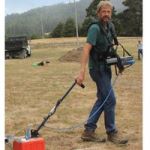 Scott Byram Ground Penetrating Radar & Geophysics
Scott Byram Ground Penetrating Radar & Geophysics
Scott Byram has conducted extensive research on intertidal wood stake fishing weir sites on the Northwest Coast of North America. Byram’s research integrates indigenous archaeology with ethnohistory. Recent articles address the effects of colonization on the Yaquina Tribe, the massive loss of shell mounds to early coastal road construction, and the effects of the 1700 A.D. Cascadia Subduction Zone earthquake and tsunami on Native communities of the Oregon coast. His research with David Lewis on indigenous trade across subarctic North America has opened new inquiry into long-distance trade and other interaction between Native groups east and west of the Rockies.
Byram is currently investigating 19th century archival maps depicting shell mounds and other archaeological sites along the coast and tidewater of California. He also works as a consultant in cultural resource management, often in collaboration with Indian tribes in Oregon and California.
Tara Lepore Museum Collections Careers
Dr. Taormina (Tara) Lepore (she/they) is a vertebrate paleontologist and science education researcher with over 15 years of experience in museum education and collections best practices. She has worked or volunteered in numerous museums and field sites throughout the United States, and is a member of the American Association for Biological Anthropology, with her first field experience in North American archaeology. She recently completed her PhD in the Department of Integrative Biology at UC Berkeley and is currently a postdoctoral researcher in science education equity at the Mallinson Institute for Science Education at Western Michigan University.
Kent Lightfoot (UC Berkeley) A Brief History of California Archaeology: How Innovations in Field and Lab Methods Have Transformed the Discipline in Recent Years
Kent G. Lightfoot is Distinguished Professor Emeritus of Anthropology at the University of California, Berkeley. He has been a member of the Berkeley faculty since 1987 and has undertaken archaeological work in New England, the American Southwest, Alaska, Hawaii, and California. His recent investigations have focused on the archaeology of colonialism, the shell mounds of the greater San Francisco Bay Area, and Indigenous landscape and seascape stewardship practices along the Central Coast of California.
 Trish Fernandez How best to position yourself for a long-term career in cultural resources management
Trish Fernandez How best to position yourself for a long-term career in cultural resources management
Trish Fernandez is the President and CEO of InContext, a small, woman and minority-owned corporation specializing in cultural resources management. She has over 27 years of experience practicing cultural resources management in the western United States. Her expertise is in local, state, and federal cultural resources compliance. Her technical expertise is in historical archaeology, architectural history, and the indigenous archaeology and ethnohistory of Northern California. She has long been an advocate for the rights of archaeological technicians and of integrating the expertise of local indigenous and descendant communities into cultural studies. As a result, she has developed a respectful rapport with tribes, as well as federal agencies and the Office of Historic Preservation, which review her work. Trish has devoted her volunteer time to improving standards and consistency of professional archaeology in California. She has served on the California State Historical Resources Commission as their Historical Archaeologist, where she cofounded the Archaeological Resources Committee. Through this committee, she gathered representatives of local, state, and federal agencies; developers, tribes, and other cultural resources stakeholders. This group developed white papers identifying problems in the professional practice and how to address them, with specific tasks. Although unable to complete the tasks through the Office of Historic Preservation, her efforts were supported by the Society for California Archaeology (SCA), where she served as the Chair of Professional Standards and Ethics Committee. In this capacity, she provided the Governor’s Office of Planning and Research with comments regarding requested changes to the CEQA Guidelines; led the committee in completing minimum qualification standards for all levels of archaeological field crew; and successfully led the revision to the SCA’s Code of Ethical Guidelines. She is the past President of the Register of Professional Archaeologists, where she worked toward consistent professional standards and ethics, as well as removing barriers to creating a well-trained, diverse, and inclusive workforce.
 Christine Hastorf (UC Berkeley) Paleoethnobotany and the Archaeology of Foodways
Christine Hastorf (UC Berkeley) Paleoethnobotany and the Archaeology of Foodways
Christine Hastorf is a professor in the Anthropology department and the director of the Archaeological Research Facility (ARF) at UC Berkeley. She is also the director of the McCown Archaeobotany Laboratory at UC Berkeley.
 Melanie Cootsona How to Get Your First CRM Job: Getting Paid to do Archaeology
Melanie Cootsona How to Get Your First CRM Job: Getting Paid to do Archaeology
Melanie's expertise focuses on getting a position in CRM as a field technician and topics such as networking to get a first job in the field, how to advocate for oneself, and what to expect during the day-to-day schedule as a California field technician. She also provides students with details about what the job actually entails, and how to create safer environments for those working on site.
 Samantha Dollinger (Sonoma State University) Introduction to CRM Project Management and Law
Samantha Dollinger (Sonoma State University) Introduction to CRM Project Management and Law
Samantha (Sam) Dollinger is a staff archaeologist and the Small Contracts Coordinator at the Anthropological Studies Center at Sonoma State University (SSU). She has over 10 years of experience working in CRM throughout California and manages various compliance projects. She received her B.A. from San Diego State University and her M.A. in Cultural Resources Management from Sonoma State University. Her research interests include cultural landscapes, especially in the Southern California deserts. Sam is also a lecturer in the Anthropology Department at SSU and teaches two courses on CRM field methods and project management.
 Christopher Lowman (Assistant Professor of Teaching, Anthropology Department, UC Irvine)
Christopher Lowman (Assistant Professor of Teaching, Anthropology Department, UC Irvine)
Christopher Lowman brings to the Field School his knowledge and expertise in planning for the many careers open to Anthropology and Archaeology students. Dr. Lowman holds a B.A. in Archaeology and History from Stanford University (2010) and a PhD in Anthropology from UC Berkeley (2019). He has experience working in city planning, cultural resource management, parks, and museums, as well as teaching and research in academic institutions. His research interests include immigration and gender, with a focus on 19th-century California and museums.
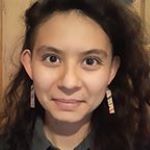 Paulina Przystupa Data Clean-Up and Visualization
Paulina Przystupa Data Clean-Up and Visualization
Paulina F. Przystupa is a Postdoctoral Researcher in Data Visualization and Reproducibility at the Alexandria Archive Institute (Open Context). Paulina is of Filipino and Polish descent and a settler of North America. She studied at the University of Washington (Seattle, WA), where she earned a B.A. (2012) majoring in History and Anthropology. She earned her M.A. (2014) at the University of New Mexico, where she is completing her PhD in Anthropology (2021). She is working on her dissertation, which examines the relationship between the built environment and the cultural education of children. Beyond her academic work, Paulina has worked as a field technician, assistant cartographer, and lab technician in cultural resource management in Australia and the United States. In addition, she is a research associate of the Indigenous Digital Archive and writes about and reviews comics, movies, and shows at WWAC, moderating panels at popular culture conventions and bringing an anthropological and academic perspective to popular media.
 Nicholas Tripcevich (Archaeological Research Facility, UC Berkeley) Historical Mapping & Lithic Analysis
Nicholas Tripcevich (Archaeological Research Facility, UC Berkeley) Historical Mapping & Lithic Analysis
Nico Tripcevich has a Ph.D. in Anthropology (UC Santa Barbara, 2007) and a B.A. in Geography (Montana, 1994). As an ARF staff member, he manages six laboratories and the instruments and permits associated with these labs as well as all computing resources, including desktop and mobile systems, licenses, and, more recently, he has served as a partner in the virtual machine distribution provided by Research IT. Nico organizes the Practical Workshops series for the ARF and coordinates the ARF's open access publication program, including ARF Reports published on the CDL eScholarship and the ARF Contributions monograph series. (Read more)
Jun Sunseri, UC Berkeley Zooarchaeology Workshop
Claudia Albano, Introduction to the Peralta Hacienda Historical Park
Lucy Gill, University of British Columbia
Albert Gonzalez, Cal State East Bay
Jocelyn Lee, Stanford University
Milly Mckenzie, UC Berkeley
Jeffrey Seckinger, UC Berkeley
Nicole Matthews and Matthew Manigault, Albion
Susan White and Jennifer Norton, US Forest Service
Support
The ARF Field School is supported by grant funding and generous contributions by individual donations from our community of supporters, including the Register of Professional Archaeologists, Albion, and the Prentice Fund for Environmental Archaeology. The 2022 field season was supported with grants from the Wenner-Gren Foundation and the Berkeley Collegium.



Summer 2022
In March 2023, the ARF presented a poster at the Society for California Archaeology conference in Oakland, California, describing the 2022 Field School. (Please view a PDF of the poster online.) The ARF Field School is a six-week program that offers archaeological experience, a requirement for students pursuing careers in archaeology. It also diversifies the field and creates pathways for those who otherwise would find it challenging to participate. The program involves historical research and mapping, remote sensing, survey, field-based data collection, artifact analysis, reporting, and public engagement.
In the 2022 pilot program, archaeological research took place at Peralta Hacienda Historical Park, located in the Fruitvale neighborhood of Oakland, which was once part of the larger Rancho San Antonio.
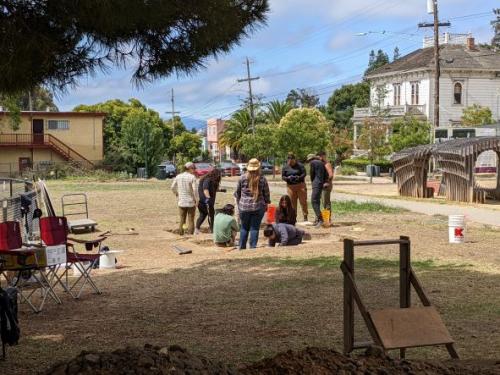
Guiding research questions included:
- What was the nature of 20th 20th-century occupation at Peralta Hacienda?
- Can we infer long-term cultural landscape changes at Peralta Hacienda as demonstrated by archaeological and historical evidence?
Archaeological data collection focused on the 20th-century occupation of the site. This contemporary archaeology project utilized a range of low-impact data collection methods, including geophysical techniques, pedestrian survey and mapping, and targeted excavations of mid-20th-century deposits. All phases of the project were guided by ethical archaeological stewardship principles, minimally impactful data collection procedures, and public engagement.
Throughout all stages of the project, students were responsible for engaging with park visitors, park staff, K-12 students, neighborhood communities, and other stakeholders in the process of doing archaeology in the field and the lab. Students examined how archaeology is used as a tool for public engagement and engaged in public archaeology themselves by designing their own public archaeology project at the end of the field school.
Summer 2022 Leadership and Speakers
Dr Meredith Reifschneider (2022 Field School Director) is a historical archaeologist whose primary research interests are the social politics of medicine and the history of healthcare. She integrates methods and theories from archaeology, history, and medical anthropology to understand how patients in institutional contexts practice medicine and self-care. Her interests include military medicine, African Diaspora archaeology, Virgin Islands history, and material culture studies. (Read more)
Burcu Tung (2022 Excavation Director) has extensive experience in archaeological data management and digital recording. Burcu has lectured at the University of California, Merced, and the University of California, Berkeley, on heritage and heritage management. She received her PhD in Anthropology from UC Berkeley.
We are grateful for the participation of the following individuals, who presented lectures and led workshops during the six-week program:
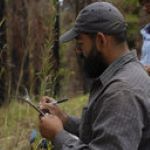 Alec Apodaca (UC Berkeley) Flotation & Macrobotanical Analysis
Alec Apodaca (UC Berkeley) Flotation & Macrobotanical Analysis
Alec Apodaca is a PhD student in UC Berkeley's Department of Anthropology, with research interests in Environmental Archaeology, Ethnobotany, and Historical Ecology in California. To carry out this work, Alec uses low-impact sampling, fine-grained data recovery, and a collaborative research design intended to better understand how Indigenous stewardship of natural resources developed over time.
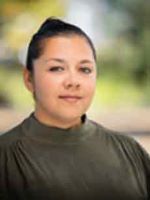 Vanessa Armenta (Cultural Resources Specialist at Environmental Science Associates) Previous survey work at the Peralta Hacienda Historical Park
Vanessa Armenta (Cultural Resources Specialist at Environmental Science Associates) Previous survey work at the Peralta Hacienda Historical Park
Vanessa Armenta received a B.A. in Anthropology with a focus in Archaeology from Cal State East Bay in 2018 and an MA in Public/Applied History in 2022. Vanessa is passionate about increasing diversity within the field of history, and her scholarship explores underrepresented communities in American history. Her recent work examined gender, culture, and society during the California period.
 Scott Byram Ground Penetrating Radar & Geophysics
Scott Byram Ground Penetrating Radar & Geophysics
Scott Byram has conducted extensive research on intertidal wood stake fishing weir sites on the Northwest Coast of North America. Byram’s research integrates indigenous archaeology with ethnohistory. Recent articles address the effects of colonization on the Yaquina Tribe, the massive loss of shell mounds to early coastal road construction, and the effects of the 1700 A.D. Cascadia Subduction Zone earthquake and tsunami on Native communities of the Oregon coast. His research with David Lewis on indigenous trade across subarctic North America has opened new inquiry into long-distance trade and other interactions between Native groups east and west of the Rockies.
Byram is currently investigating 19th-century archival maps depicting shell mounds and other archaeological sites along the coast and tidewater of California. He also works as a consultant in cultural resource management, often in collaboration with Indian tribes in Oregon and California.
 Kim Connor The Archaeology of Food and Dining at Hyde Park Barracks Female Immigration Depot (1848-1887)
Kim Connor The Archaeology of Food and Dining at Hyde Park Barracks Female Immigration Depot (1848-1887)
Kimberley Connor is a Ph.D. candidate at Stanford University, where she is completing her dissertation, From Immigrant to Settler: Diet in Nineteenth-Century British Institutions of Immigration. As a food historian and historical archaeologist, her work combines material and archival approaches to food and dining in the past. Her research interests include recipes, cookbooks, identity production, immigration, and institutional foodways.
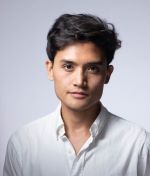 Ruzel Ednalindo A Day in the Life of an Agency Archaeologist for the U.S. Army Corps of Engineers
Ruzel Ednalindo A Day in the Life of an Agency Archaeologist for the U.S. Army Corps of Engineers
Ruzel Ednalino is a Filipino American archaeologist who has worked in federal agencies for most of his career, beginning with internships at land-managing agencies as a college student before his current position as an archaeologist for the U.S. Army Corps of Engineers, San Francisco District (USACE). He has worked 4 years for USACE serving as a cultural resources specialist for Civil Works studies authorized by Congress to solve problems related to flood and coastal storm risk reduction, navigation, and ecosystem restoration in Northern and Central California. His work as an agency archaeologist focuses on having USACE undertakings comply with Section 106 of the National Historic Preservation Act. This involves working meaningfully with consulting parties such as the California State Historic Preservation Officer, Tribes, and descendant communities and ensuring they have a voice in preserving the cultural resources and historic places that matter to them. He has studied at UC Berkeley obtaining both his Bachelors in Anthropology with a minor in Geographic Informational Sciences in 2017 and a Master of Arts Degree in Anthropological Archaeology in 2018.
 Trish Fernandez Key Points of Discussion: ❖ current state of the archaeological workforce in the U.S. ❖ how the profession got into this precarious position ❖ what the Register of Professional Archaeologists is doing to help fix the problem ❖ how best to position yourself for a long-term career in cultural resources management
Trish Fernandez Key Points of Discussion: ❖ current state of the archaeological workforce in the U.S. ❖ how the profession got into this precarious position ❖ what the Register of Professional Archaeologists is doing to help fix the problem ❖ how best to position yourself for a long-term career in cultural resources management
Trish Fernandez is the President and CEO of InContext, a small, woman- and minority-owned corporation specializing in cultural resources management. She has over 27 years’ experience practicing cultural resources management in the western United States. She meets the Secretary of Interior’s Professional Qualification Standards for Archaeologist and Historian and is a Registered Professional Archaeologist (No. 12198) and a California Registered Historian (No. 583). Ms. Fernandez identifies most simply with her “Mexican” descent; however, her family ties to Mexico are less defined than her ties to her native American roots in the New Mexico/Chihuahua borderlands. Trish’s expertise is in local, state, and federal cultural resources compliance. She regularly teaches courses and workshops to professional groups and is a guest speaker at local colleges. Her technical expertise is in historical archaeology, architectural history, and the indigenous archaeology and ethnohistory of Northern California. She has long been an advocate for the rights of archaeological technicians and for integrating the expertise of local indigenous and descendant communities into cultural studies. As a result, she has developed a respectful rapport with tribes, as well as federal agencies and the Office of Historic Preservation, which review her work. Ms. Fernandez has devoted her volunteer time to improving standards and consistency of professional archaeology in California. She has served on the California State Historical Resources Commission as their Historical Archaeologist, where she cofounded the Archaeological Resources Committee. Through this committee, she gathered representatives of local, state, and federal agencies, developers, tribes, and other cultural resources stakeholders. This group developed white papers that identified problems in the professional practice and suggested how to address them with specific tasks. Although unable to complete the tasks through the Office of Historic Preservation, her efforts were supported by the Society for California Archaeology (SCA), where she served as the Chair of Professional Standards and Ethics Committee. In this capacity, she provided the Governor’s Office of Planning and Research with comments regarding requested changes to the CEQA Guidelines; led the committee in completing minimum qualification standards for all levels of archaeological field crew; and successfully led the revision to the SCA’s Code of Ethical Guidelines. She currently serves as President of the Register of Professional Archaeologists, where she continues to work toward consistent professional standards and ethics, as well as removing barriers to creating a well-trained, diverse, and inclusive workforce.
InContext was established in 2007, with its headquarters in Sacramento, California. We specialize in assisting local, state, and federal agencies to meet their cultural resources compliance needs under the California Environmental Quality Act (CEQA), the National Environmental Policy Act (NEPA), and Section 106 of the National Historic Preservation Act (NHPA). We have a regular, full-time staff of five cultural resources specialists, one GIS specialist, and one contract manager. We also employ 23 on-call experts and technicians who can be assembled for any size field project or specialized analysis. Staff expertise includes architectural history, historical artifact analysis, archival research, large-scale cultural resources surveys, lithic analysis, flotation osteology, and other cultural resource services.
Randy Haas (UC Davis) Lithic Analysis
 Christine Hastorf (UC Berkeley) Paleoethnobotany and the Archaeology of Foodways
Christine Hastorf (UC Berkeley) Paleoethnobotany and the Archaeology of Foodways
Christine Hastorf is a professor in the Anthropology department and the director of the Archaeological Research Facility at UC Berkeley. She is also the director of the McCown Archaeobotany Laboratory at UC Berkeley.
 Chris Hoffman The archaeology of metals and metallurgy
Chris Hoffman The archaeology of metals and metallurgy
Chris has a PhD in Anthropology from UC Berkeley, where he studied prehistoric metallurgy in Mallorca, Spain. His dissertation combines scientific approaches to archaeometallurgy with social theories of technology and technique to discuss a full range of activities — including procurement, production, use, and deposition — in the spatial and cultural contexts where archaeologists found them. Chris is now working in higher education information technologies where he is applying his findings that technology is simultaneously cultural, historical, and political, as well as material.
 Eric Kansa The Importance of Identifier Management in Archaeological Documentation: Exploring Potential Mishaps from the Field to the Future
Eric Kansa The Importance of Identifier Management in Archaeological Documentation: Exploring Potential Mishaps from the Field to the Future
Eric Kansa (PhD, Harvard University) oversees development of the archaeological data publishing service Open Context (http://opencontext.org). His research explores Web architecture, service design, and how these issues relate to the social and professional context of the digital humanities. Eric also researches policy issues relating to intellectual property, including text-mining and cultural property concerns. He has participated in a number of Open Science, Open Government, cyberinfrastructure, text-mining, and scholarly user needs initiatives, and has taught project management and information service design in the UC Berkeley School of Information’s Clinic program. He has been a principal investigator and co-investigator on projects funded by the William and Flora Hewlett Foundation, NEH, IMLS, Hewlett-Packard, Sunlight Foundation, Google, NSF, and Alfred P. Sloan Foundation.
 Koji Lau-Ozawa Collaboration and Non-Invasive Methodologies: Research Paradigms at the Gila River Incarceration Camp
Koji Lau-Ozawa Collaboration and Non-Invasive Methodologies: Research Paradigms at the Gila River Incarceration Camp
The Gila River Incarceration Camp was a WWII incarceration camp for Japanese Americans placed on a Native American Reservation. Research on this site has brought to the forefront the necessity to prioritize the needs of two different communities with intimate ties to the place and history of the camp. Working in collaboration with the Gila River Indian Community and Japanese American community organizations in California and Arizona, Koji developed a research paradigm that balanced the perspectives of these multiple publics, including non-invasive mapping, drone photography, and “catch-and-release” artifact analysis. In his talk, he will discuss these methodologies and the importance of involving community input from the beginning of project design.
Koji Lau-Ozawa is a Phd candidate in the Department of Anthropology at Stanford University. His research focuses on the archaeology of the Japanese Diaspora, and in particular, Japanese American incarceration sites from WWII. His dissertation focuses on the history and archaeology of the Gila River Incarceration Camp located on the land of the Gila River Indian Community, and the site where his grandparents were imprisoned. This research has been supported by the Wenner-Gren Foundation and the National Park Service Japanese American Confinement Sites Grant program and has appeared in the International Journal of Heritage Studies, International Journal of Historic Archaeology, World Archaeology, and elsewhere. Before Stanford, Lau-Ozawa received his MA at San Francisco State University and his undergraduate degree at the University of Edinburgh, and has worked for Stanford Heritage Services and the National Park Service.
Peter Nelson (UC Berkeley) Community-based Archaeology, Indigenous Stewardship, and Tribal Consultation
 Paulina Przystupa Data Visualization and Storytelling
Paulina Przystupa Data Visualization and Storytelling
Paulina F. Przystupa is a Postdoctoral Researcher in Data Visualization and Reproducibility at the Alexandria Archive Institute (Open Context). Paulina is of Filipino and Polish descent and a settler in North America. She studied at the University of Washington (Seattle, WA, USA), where she earned a B.A. (2012) majoring in History and Anthropology. She earned her M.A. (2014) at the University of New Mexico, which is where she is completing her PhD in Anthropology (2021). She is working on her dissertation, which examines the relationship between the built environment and the cultural education of children. Beyond her academic work, Paulina has worked in cultural resource management in Australia and the United States as a field technician, assistant cartographer, and lab technician. She is also a research associate of the Indigenous Digital Archive. In addition, she writes about and reviews comics, movies, and shows at WWAC and moderates panels at popular culture conventions, bringing an anthropological and academic perspective to popular media.
Jun Sunseri (UC Berkeley) Zooarchaeology Workshop
 Nicholas Tripcevich (Archaeological Research Facility, UC Berkeley) Historical Mapping & Lithic Analysis
Nicholas Tripcevich (Archaeological Research Facility, UC Berkeley) Historical Mapping & Lithic Analysis
Nico Tripcevich has a Ph.D. in Anthropology (UC Santa Barbara, 2007) and a B.A. in Geography (Montana, 1994). As an ARF staff member, he manages six laboratories and the instruments and permits associated with these labs. He manages the computing resources at the ARF, including desktop and mobile systems, licenses, and, more recently, as a partner in the virtual machine distribution provided by Research IT. Nico organizes the Practical Workshops series for the ARF and coordinates the ARF's open access publication program, including ARF Reports published on the CDL eScholarship and the ARF Contributions monograph series. (Read more)
David Torres-Rouff (UC Merced) Race, Ethnicity, and the History of California
Trent Trombley (UC Berkeley) Historical Bioarchaeology in Medieval Portugal
Bill White (UC Berkeley) Workshop on Historic Glass
Photo Gallery - July/August 2022
 |
 |
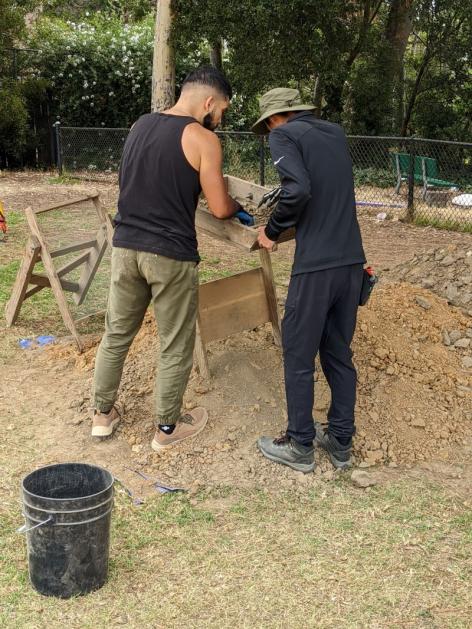 |
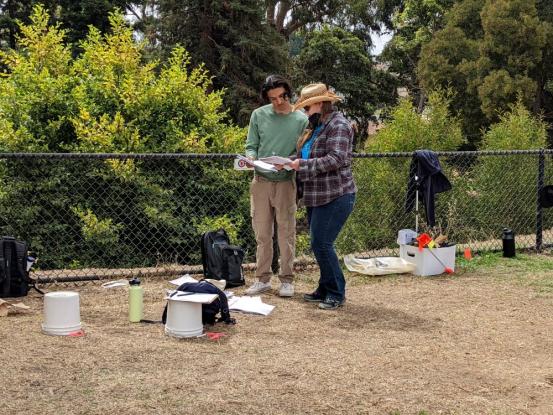 |
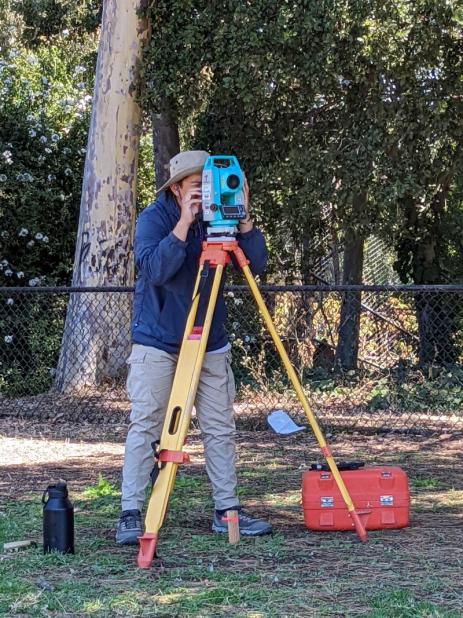 |
 |
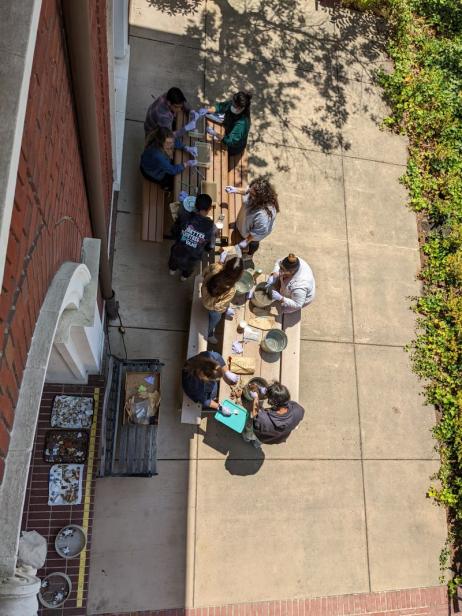 |
 |
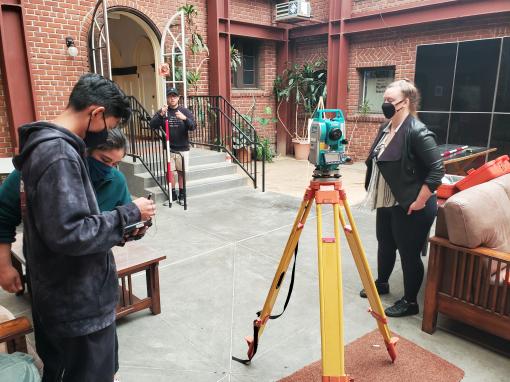 |
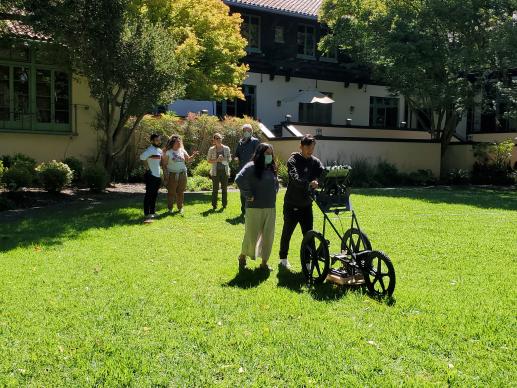 |
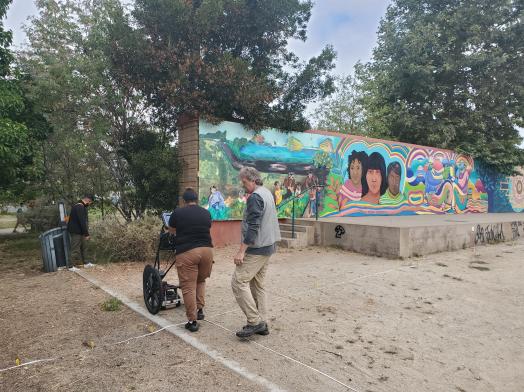 |
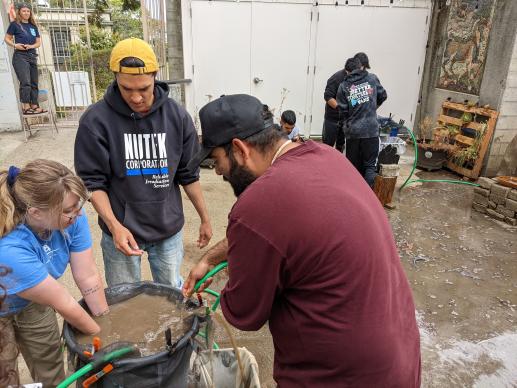 |
 |
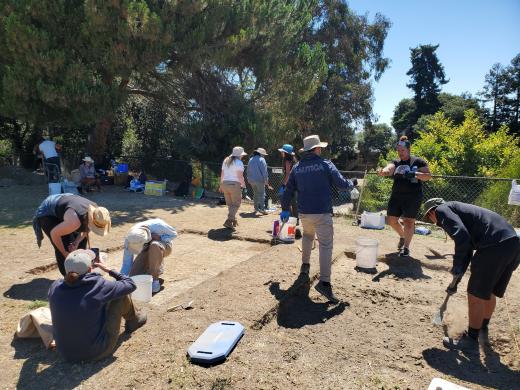 |
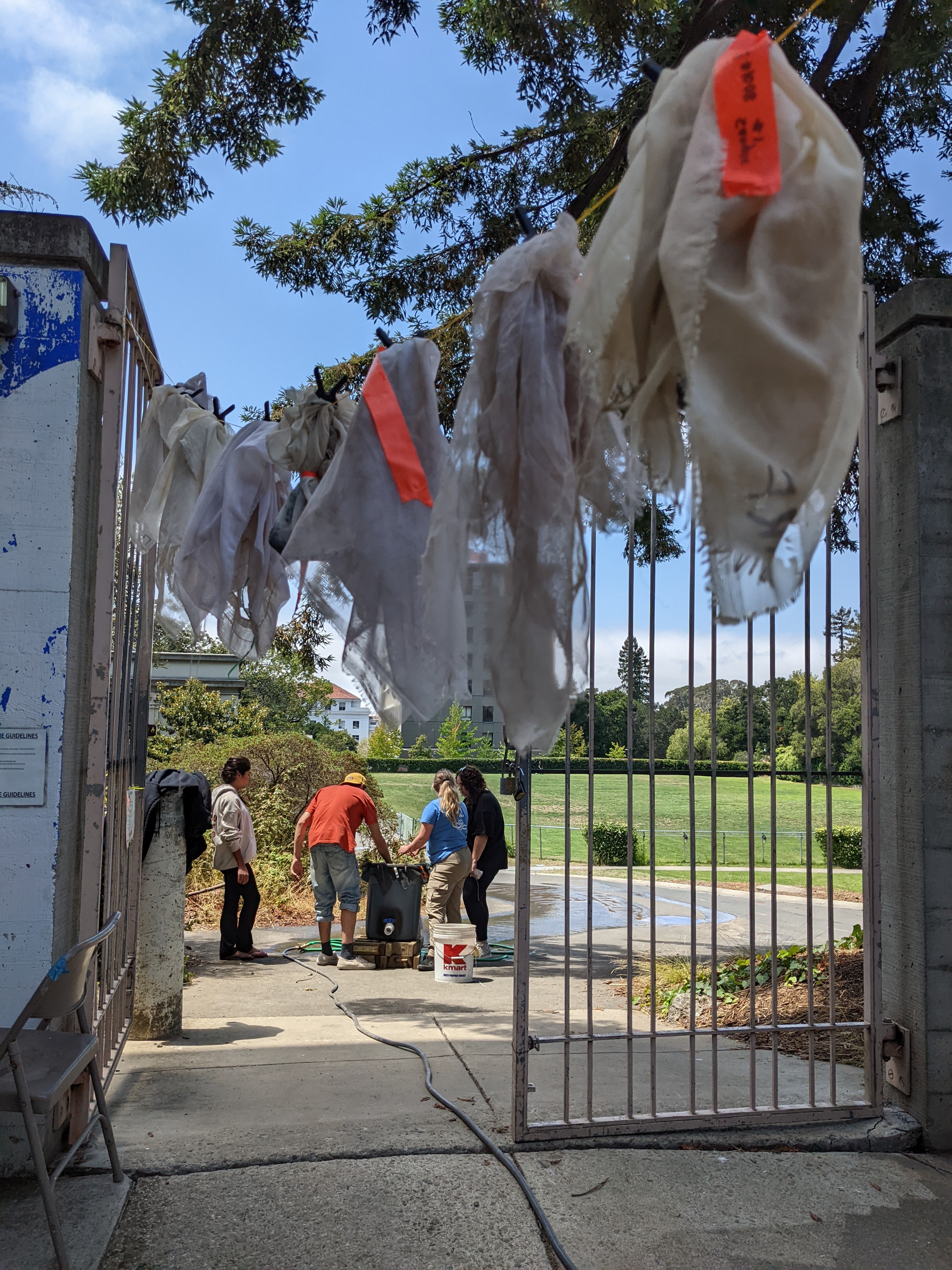 |
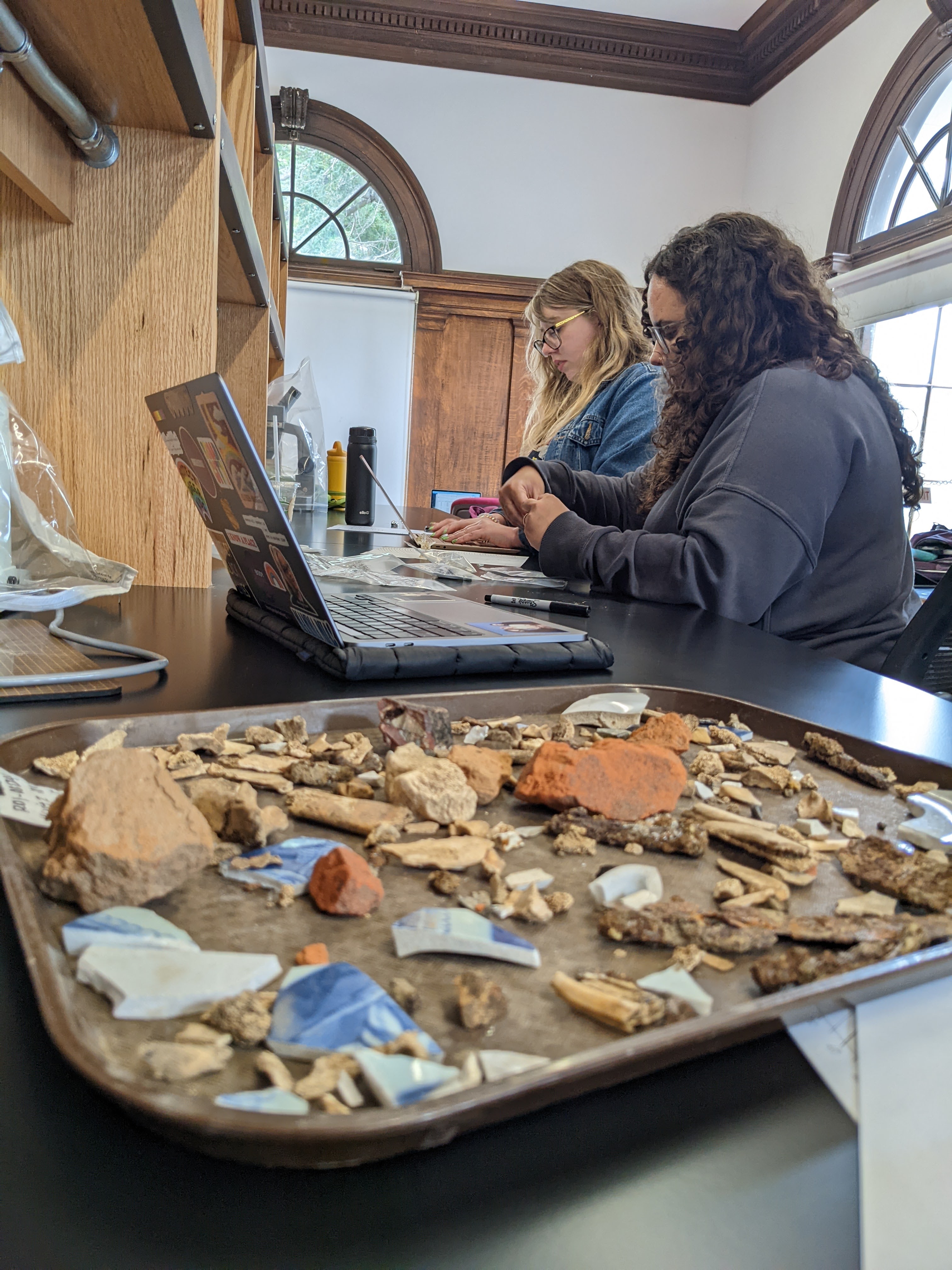 |
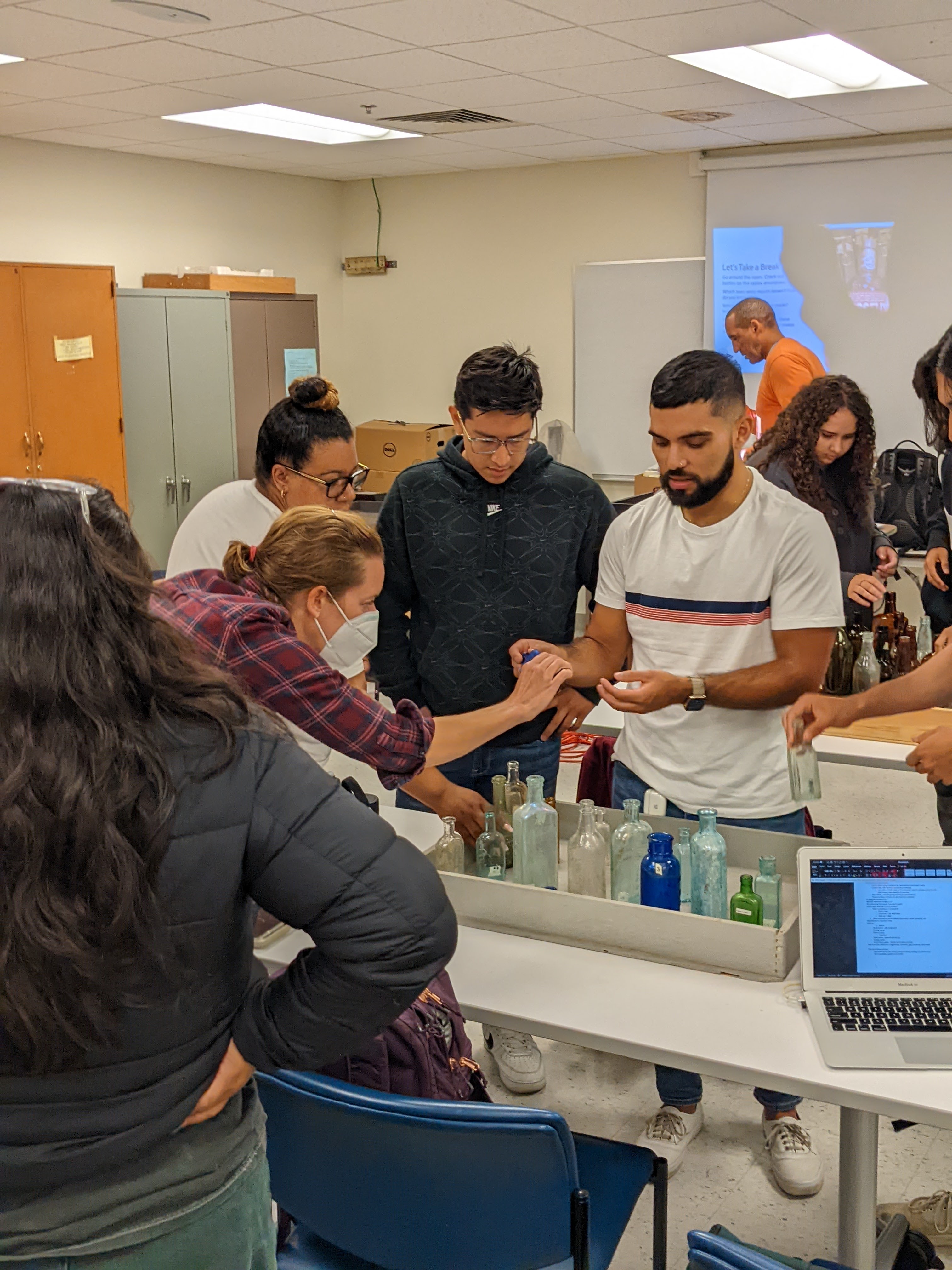 |
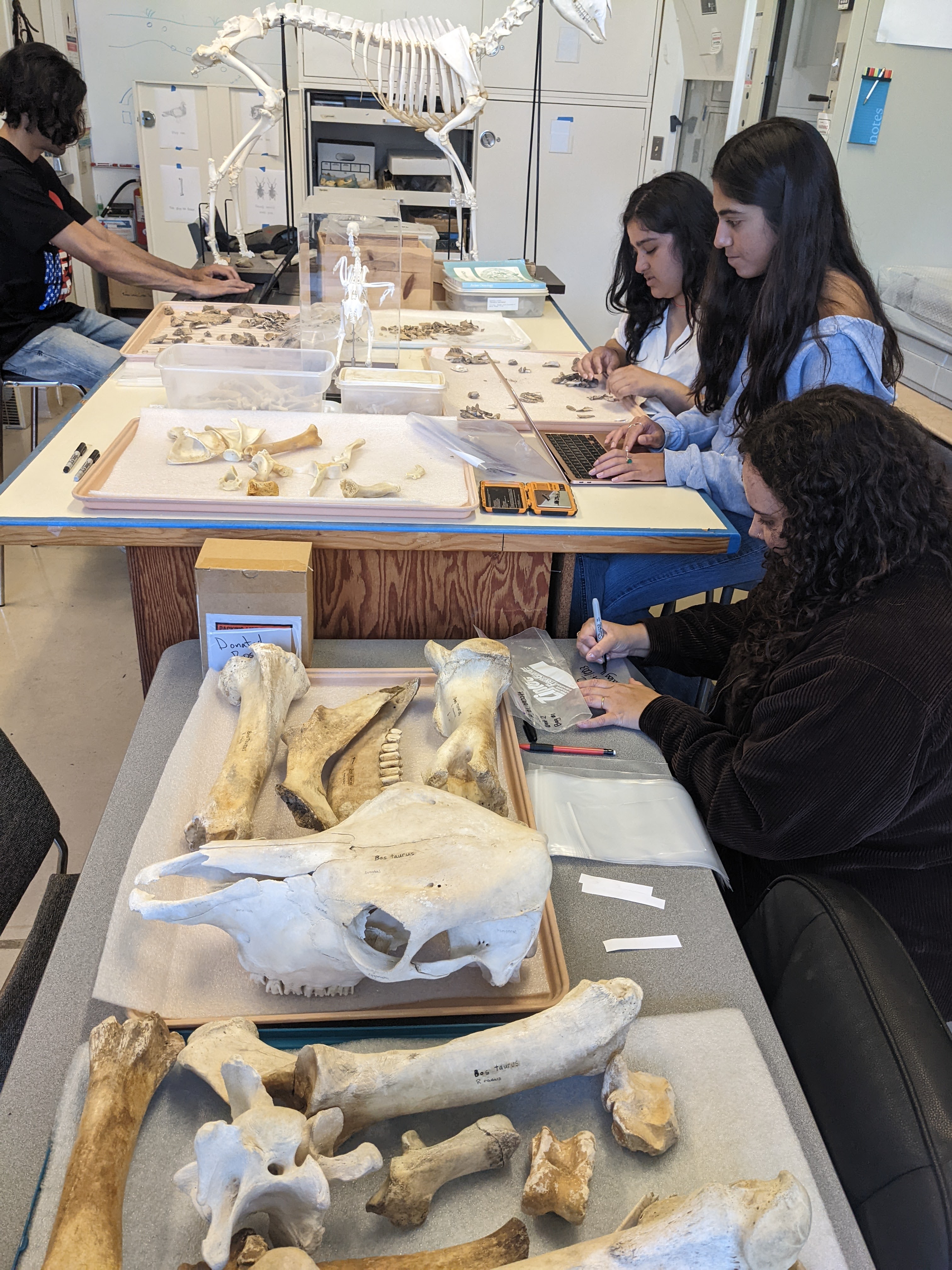 |
 |
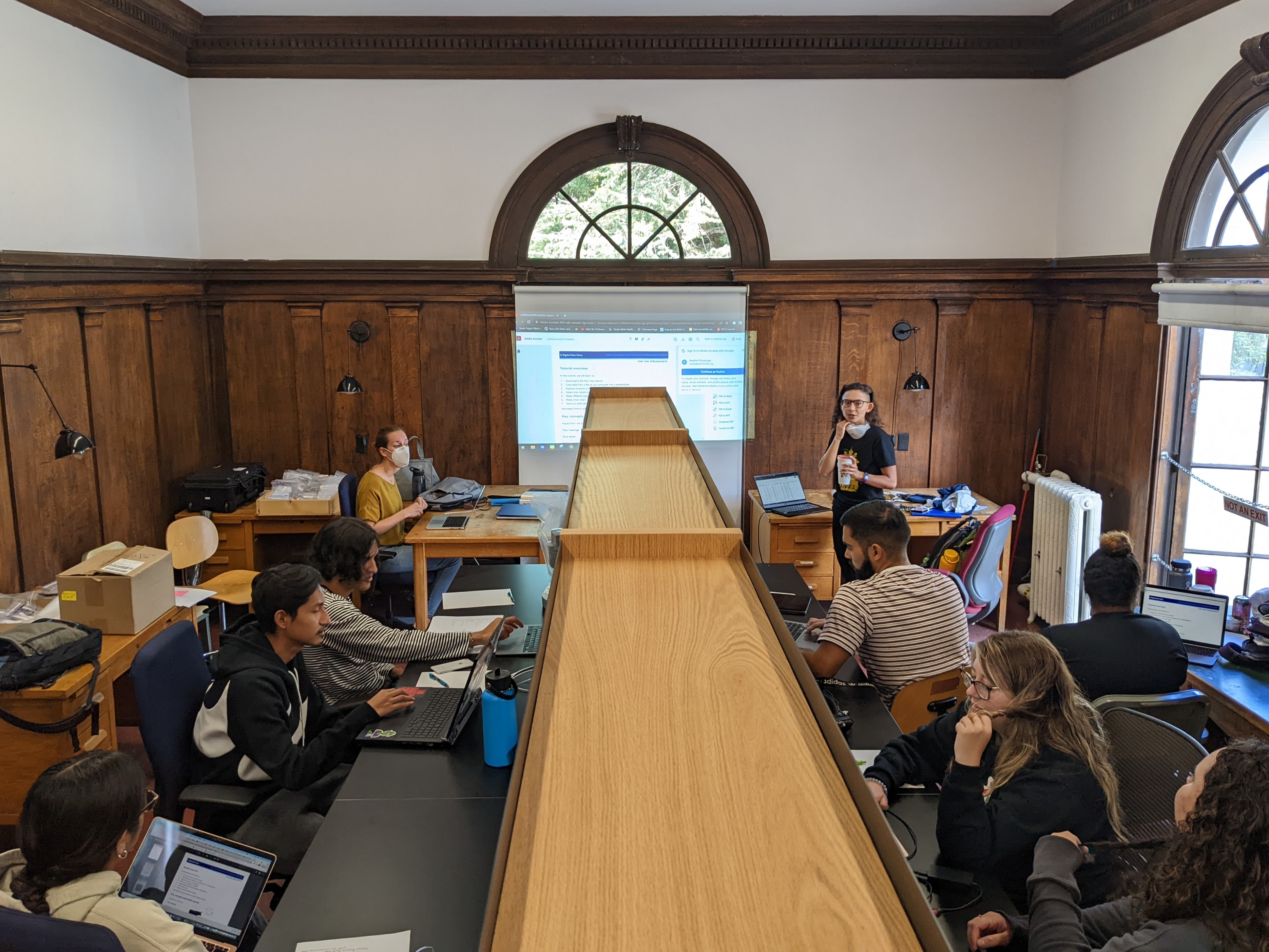 |
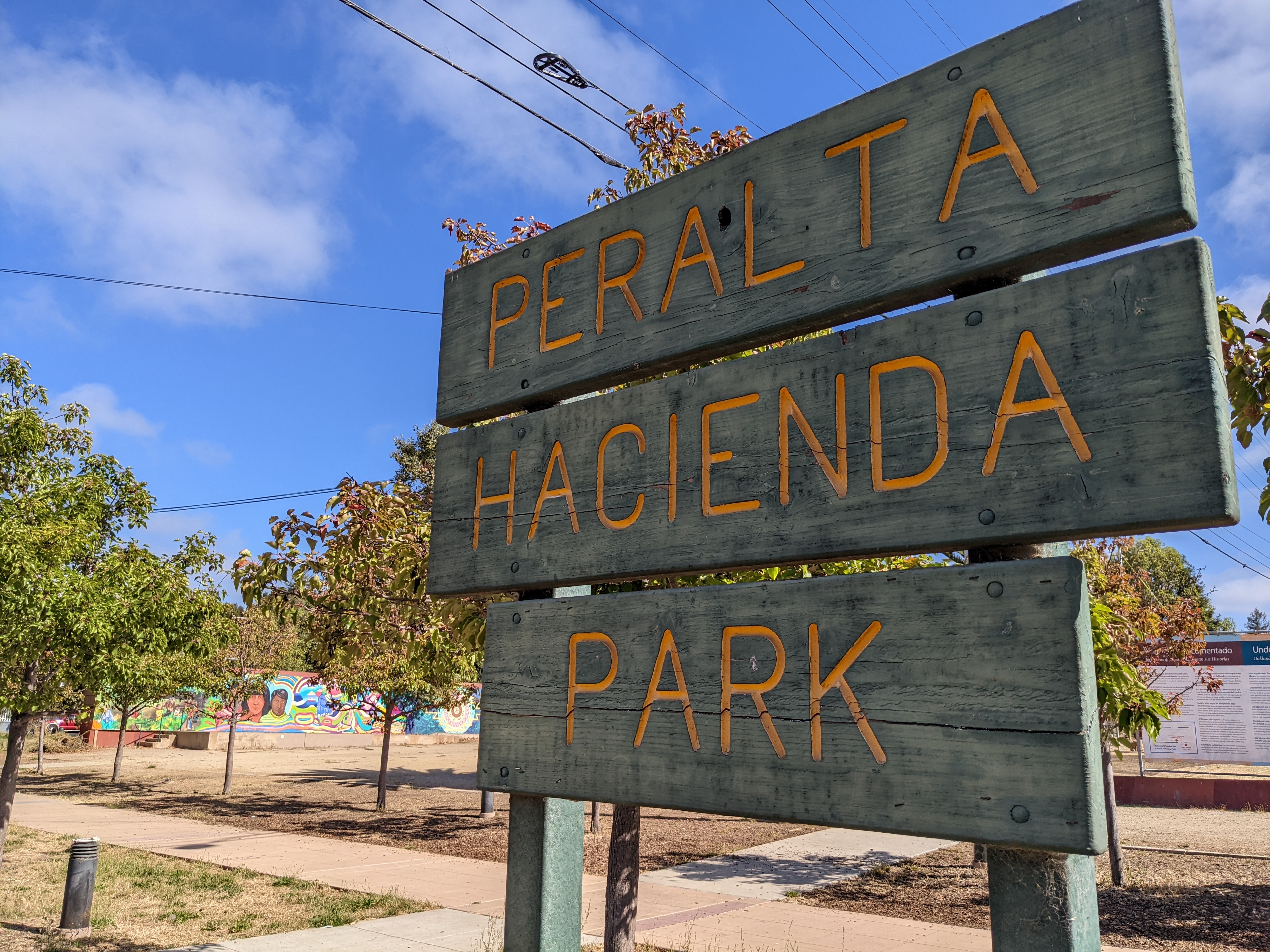 |
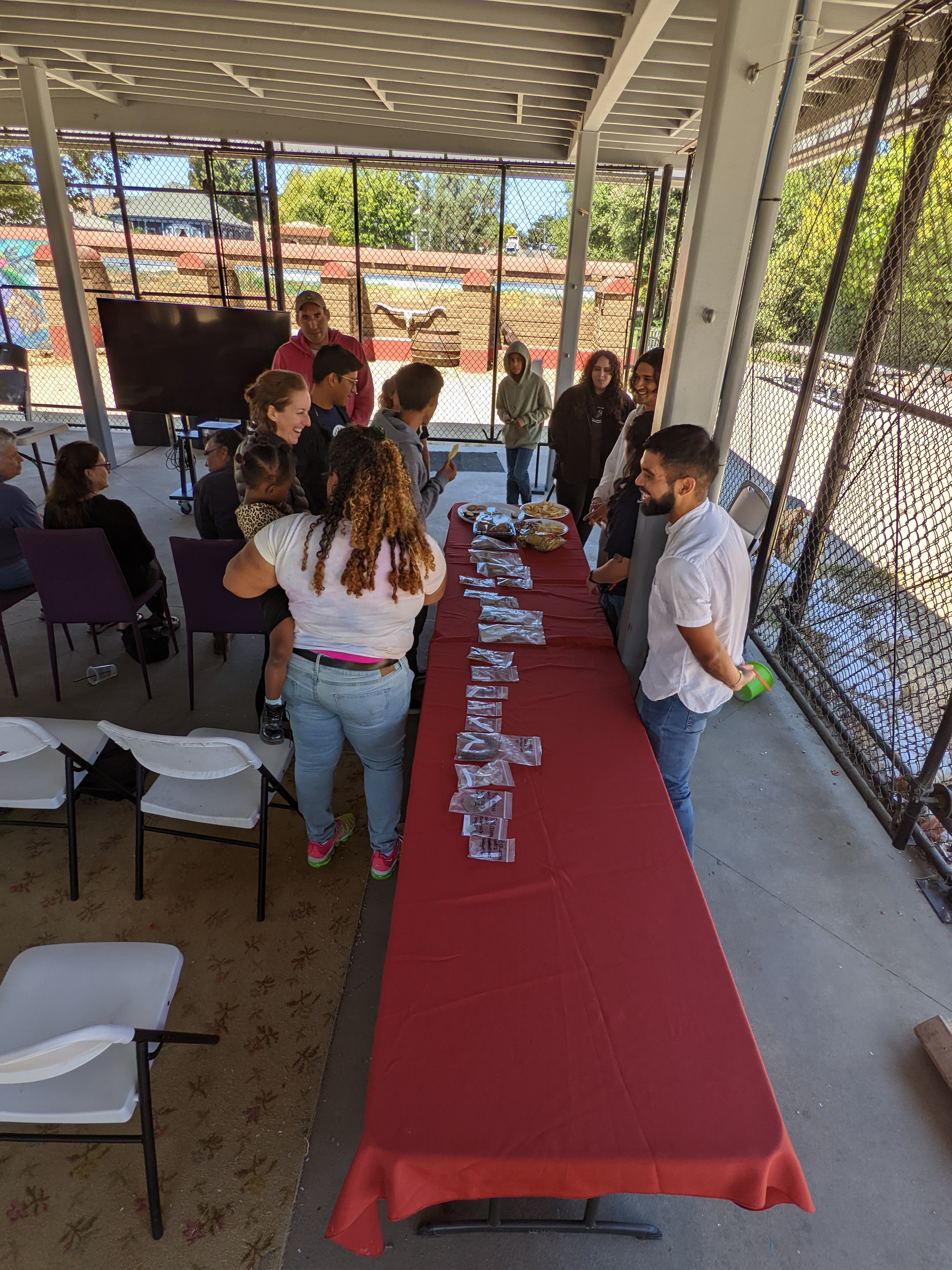 |
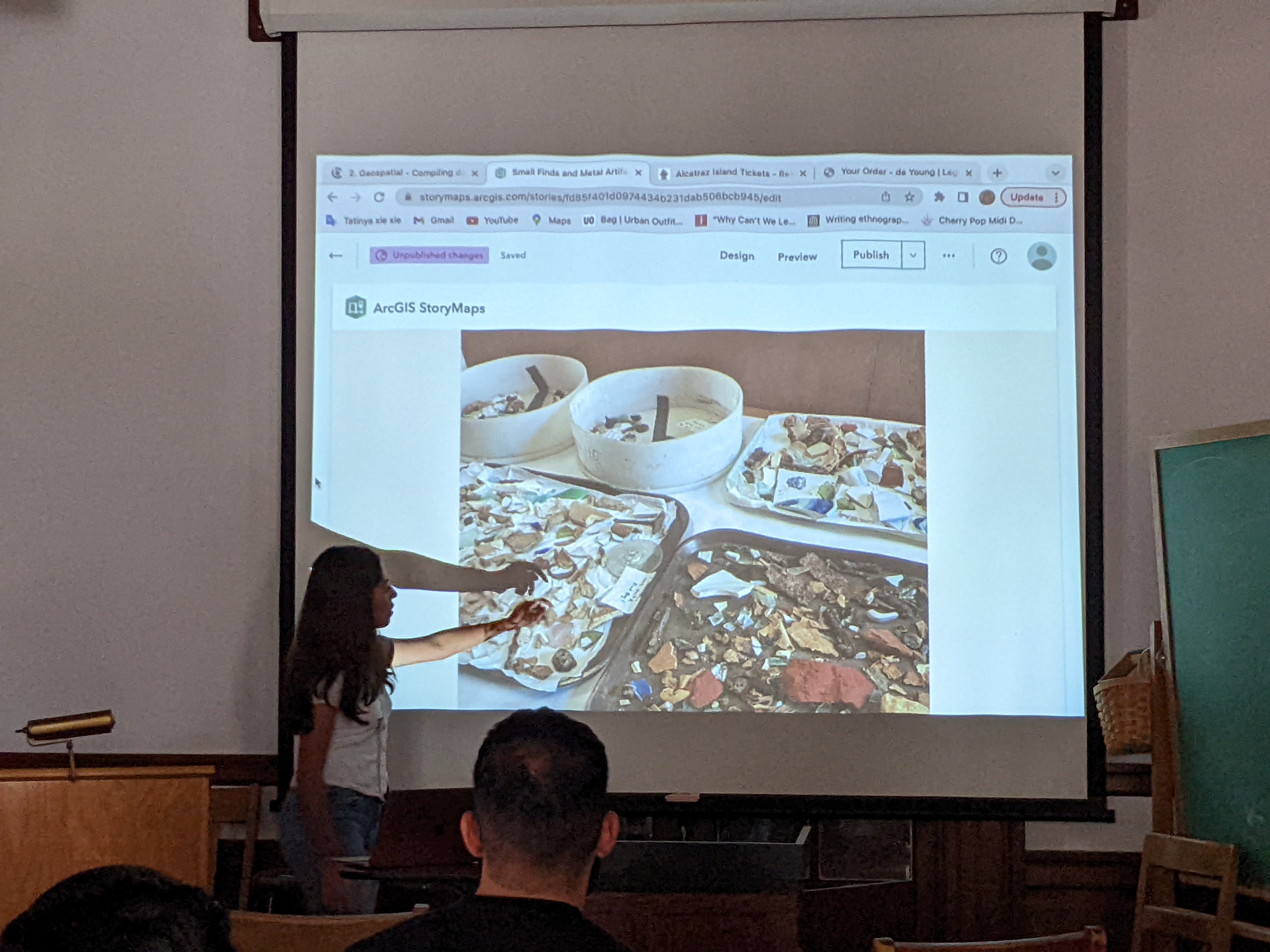 |
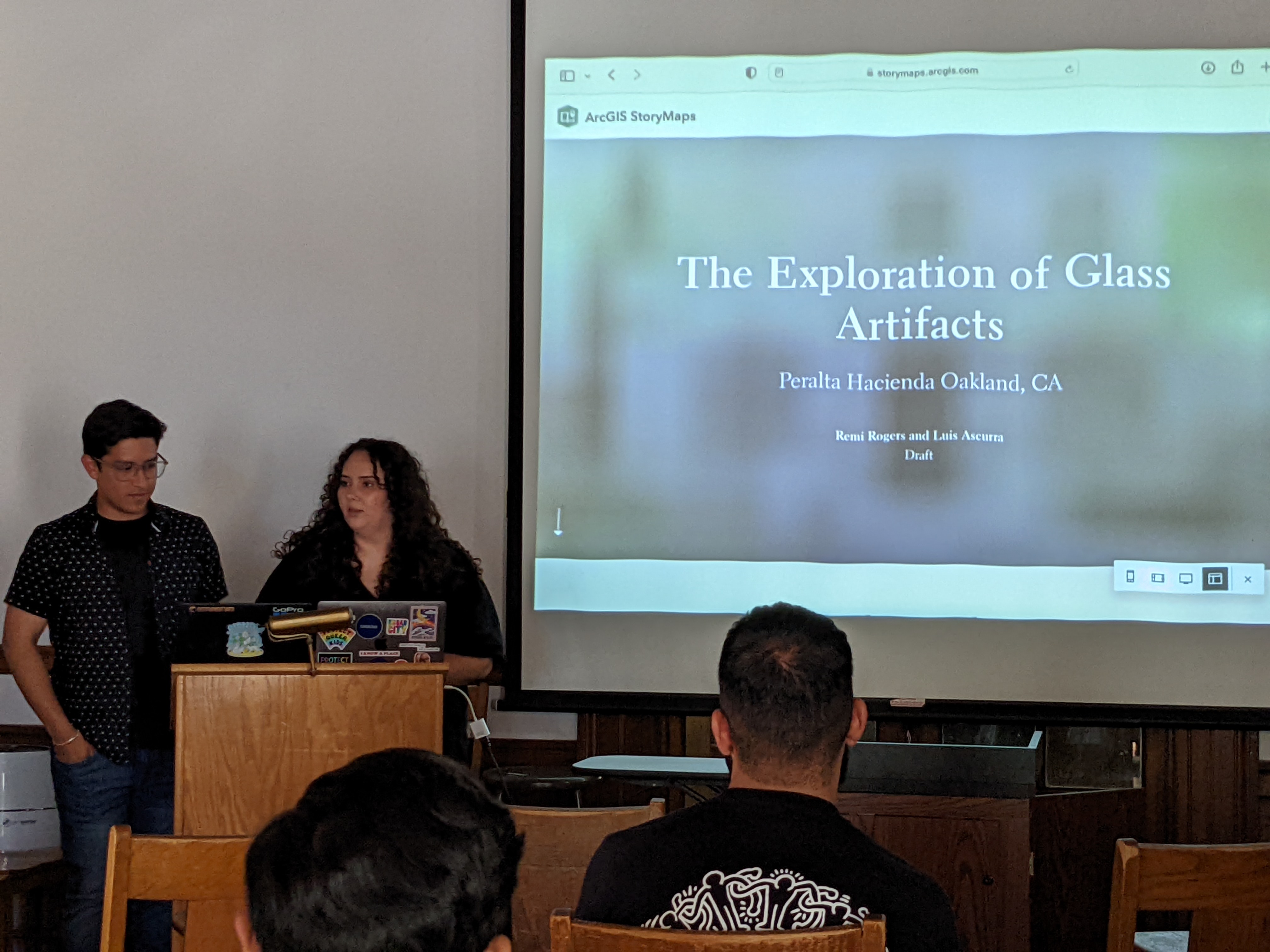 |
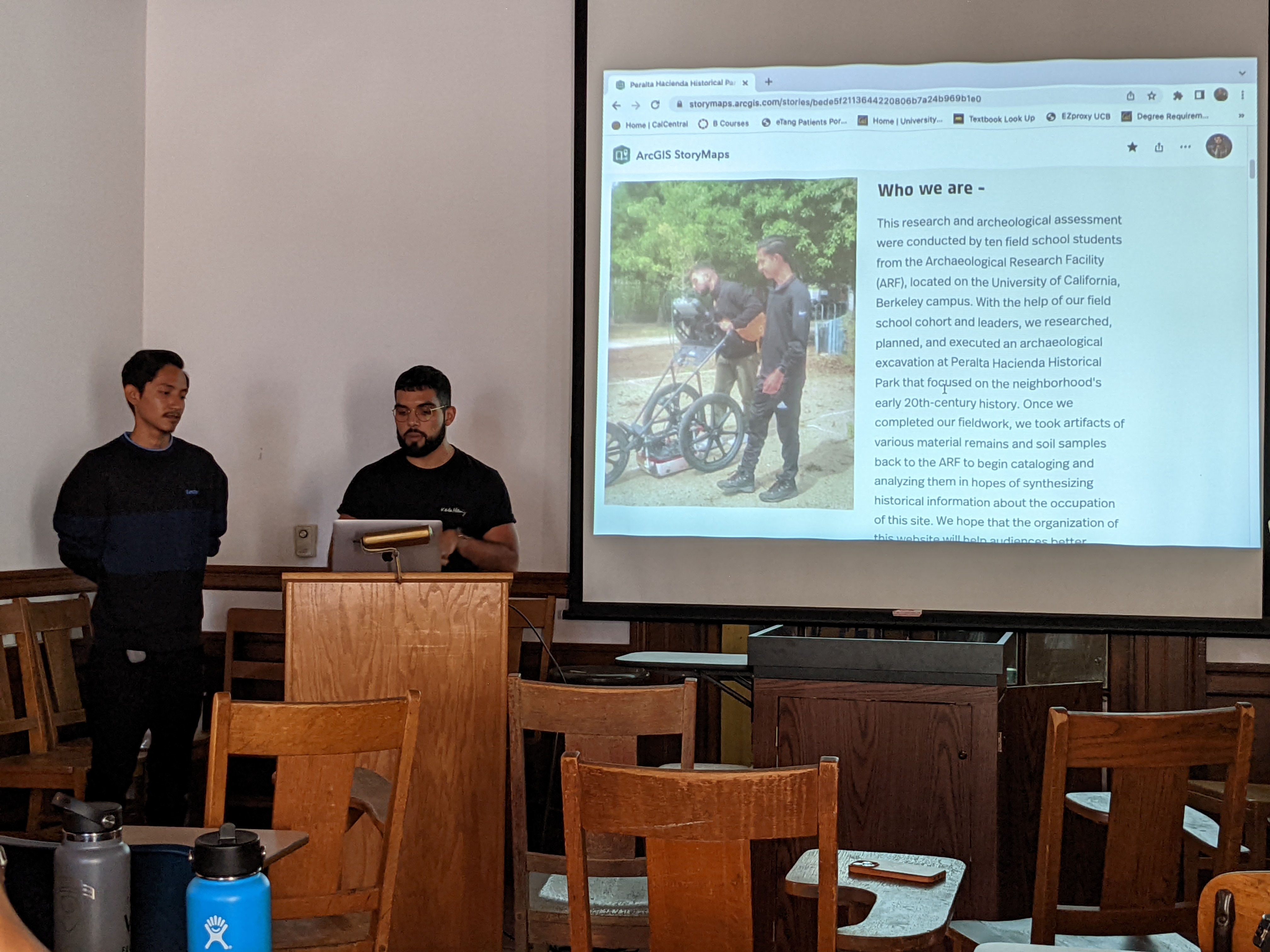 |
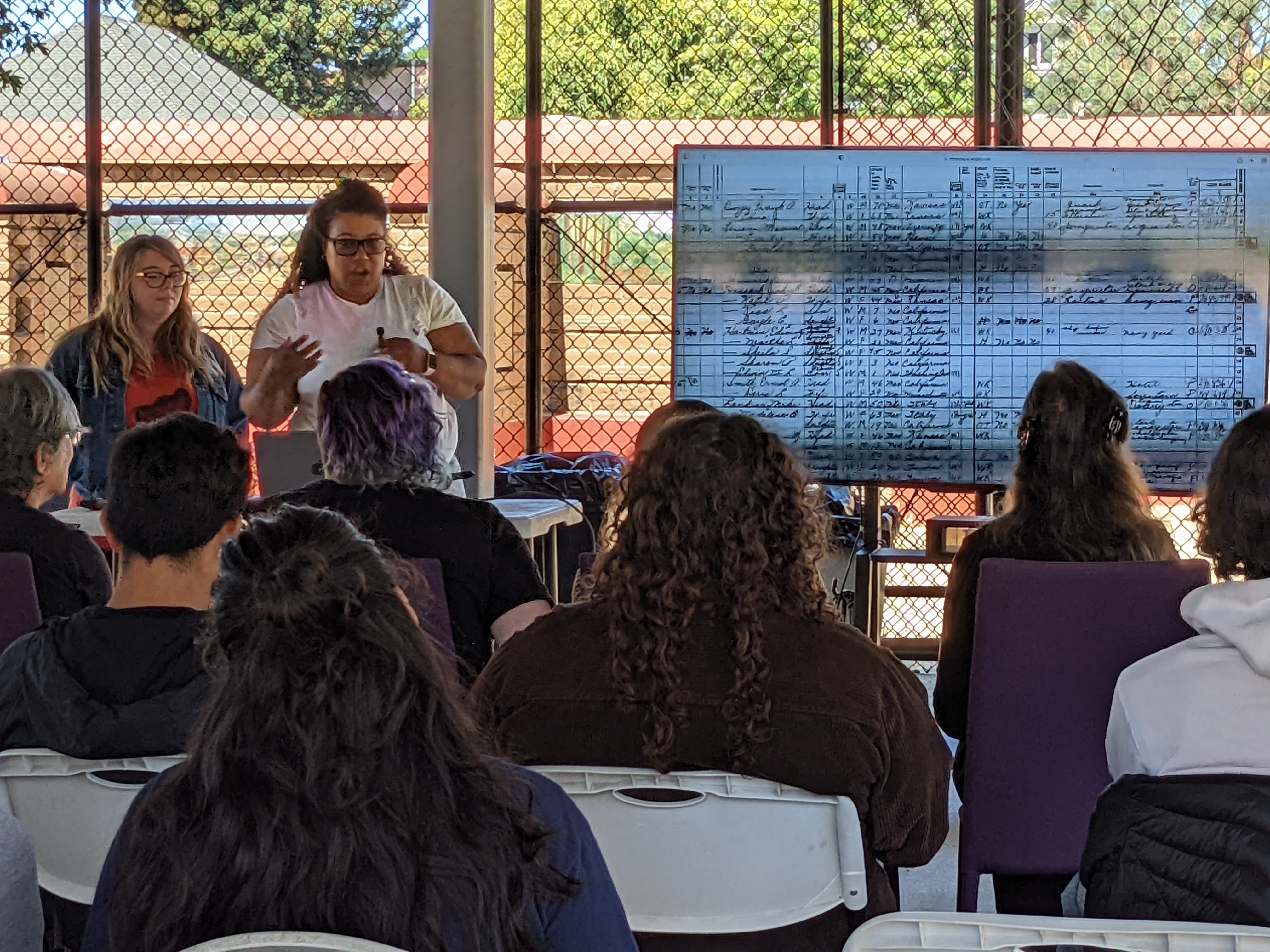 |
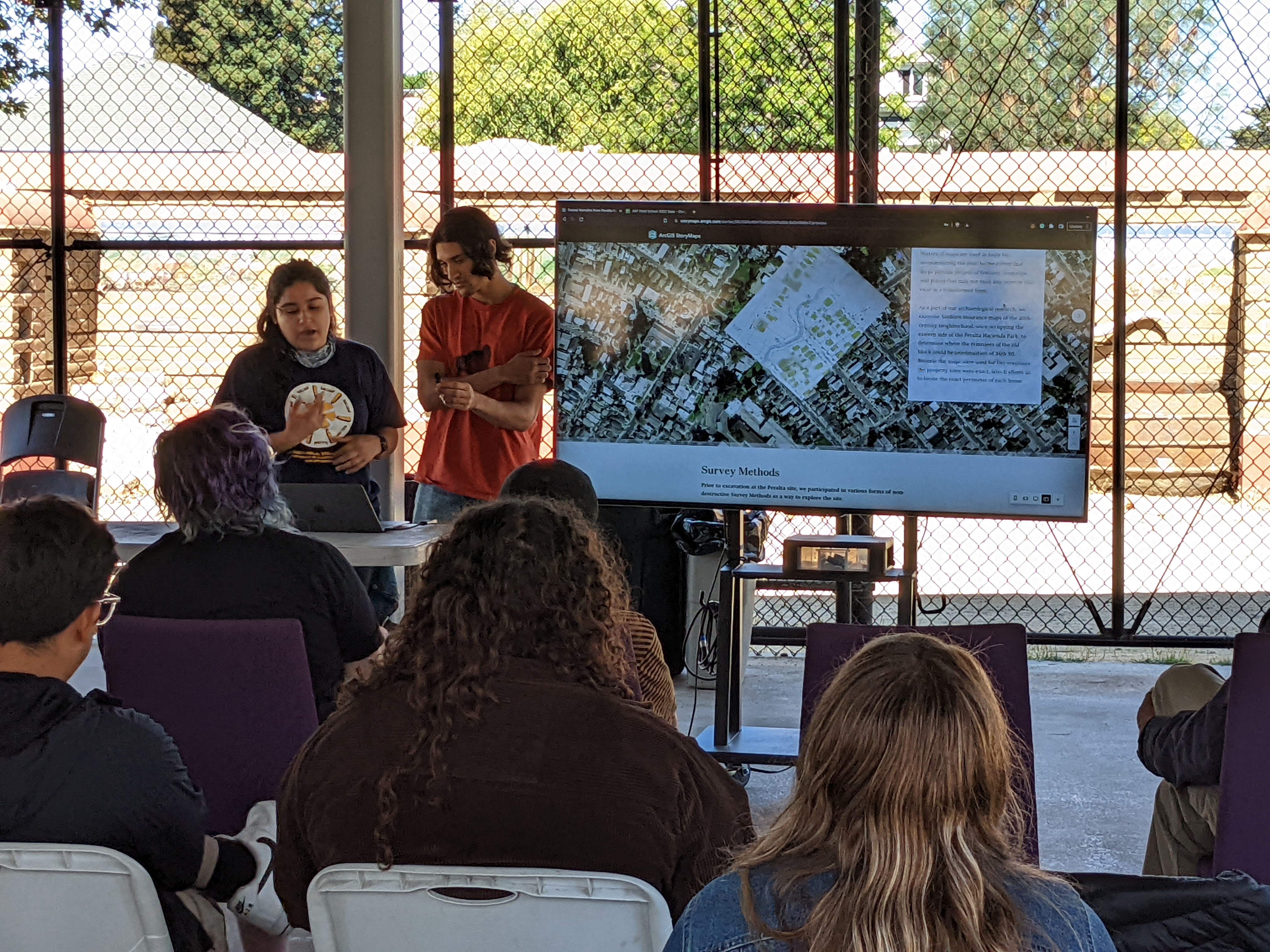 |
 |






 Dr. Meredith Reifschneider
Dr. Meredith Reifschneider Dr. Burcu Tung
Dr. Burcu Tung